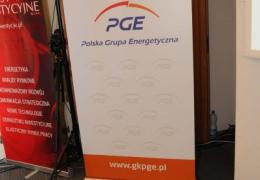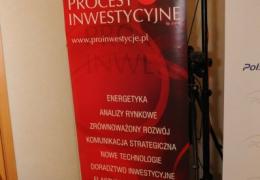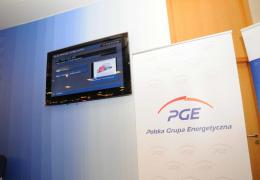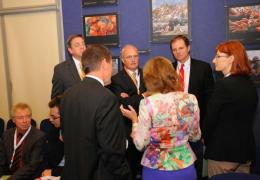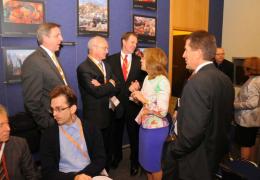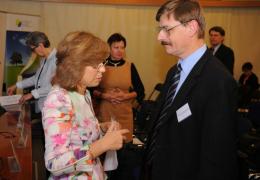Invitation for a debate
Dispersed Nuclear Energy
An Opportunity for Poland?
25 October 2013 (Friday), 13.00 – 16.00,
Polish Press Agency
Bracka 6/8, St., Warsaw
The future of nuclear energy, both on a global scale and in the context of the Polish programme for the creation of nuclear power, depends above all on the security of such power, the degree to which it is accepted by society and on the conquering of the barrier of high investment costs, including the freezing of significant funds for a long period of time and adoption of a rational programme for handling burnt-out fuel.
Discussions on the global renaissance of nuclear power began over ten years ago, largely as a result of the interplay of several trends. This led to the dynamic circulation of theses as to the inevitable depletion of carbon fuel resources and environmental threats, caused by CO2 emissions. Simultaneously, even at this early stage the huge development potential of significant economies (in particular, the Chinese economy) was clearly visible, which likely went hand in hand with the prospect of a significant increase in global energy demand. These phenomena created auspicious conditions for the development of both renewable energy and nuclear energy, the latter showing particularly active growth in Asia.
Later events, and in particular the current economic stagnation, the dynamic entry onto the American market of shale gas and the nuclear disaster in Fukushima, have led to a series of reflections, which have no doubt had an impact on the acceleration of programmes for the implementation of small modular reactors (mainly) in China and the USA. The aim of the debate is to seek answers to fundamental questions facing the nuclear power industry from the perspective of the potential for the implementation of small modular reactors allowing for the generation of up to 300MW of electrical power.
The degree of advancement of works on small modular reactors (SMRs) in the USA and China indicates that there is potential for the implementation in Poland of the first industrial SMR installation by the mid-2020s, i.e. during the period covered by the Polish Nuclear Power Programme (PNPP). Reactors of this type create potential for the introduction of dispersed nuclear energy and the participation of many entities in the realisation of the programme. There are several reasons as to why this solution may be of interest to Poland – a country that is building its nuclear programme from scratch. Such a project will facilitate:
- Easier access to investment finance and power networks – which will allow for easier acceptance of the undertaking as a result of its significantly smaller unit scale;
- An increase in system power by way of the gradual addition of modules in a specific location, in line with needs and potential;
- Direct involvement in the execution of a programme put in place by energy-intensive sectors of the economy, which focuses on low-capacity systems meeting local needs, including the application of high-temperature heat.
During the debate, we will seek answers to fundamental questions, including: to what degree do we need nuclear energy, and what are the significant aims that either cannot or will not (due to excessive costs or a lack of rationale) be achieved without nuclear power? We will also consider the conditions allowing for the extension of the Polish Nuclear Power Programme to cover the introduction of SMRs, and the safety of such reactors.
Invited Prelegents:
- Prof. Krzysztof Żmijewski – Secretary General of the Public Board for the Development of Low-emission economy in Poland;
- Prof. Ludwik Pieńkowski – AGH University of Science and Technology, HTRPL Programme in Poland;
- Prof. Zhang Zuoyi, Director – Institute of Nuclear and New Energy Technology, Tsinghua University, HTR-PM Project in China;
- Dr John E. Kelly, Deputy Assistant Secretary for Nuclear Reactor Technologies, US Department of Energy – Office of Nuclear Energy, SMR Project in the USA (light water reactors);
- J. Darren Gale, Vice President and Project Director B&W mPower, Inc.;
- Krzysztof Kilian, CEO, PGE SA – operator of the Polish nuclear programme;
- Prof. Grzegorz Wrochna, Director, National Centre for Nuclear Research, Świerk NC2I-R – EURATOM project under the leadership of the National Centre for Nuclear Research;
- Adam Kordas, Department of Nuclear Energy, Ministry of Economy.


